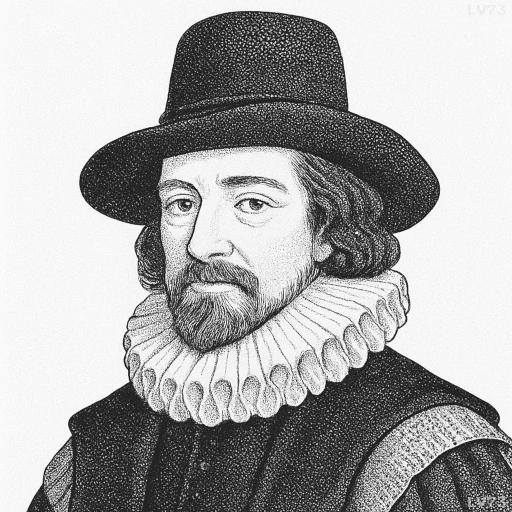“There is a difference between happiness and wisdom: he that thinks himself the happiest man is really so; but he that thinks himself the wisest is generally the greatest fool.”

- January 22, 1561 – April 9, 1626
- Born in England
- Philosopher, theologian, jurist, politician, aristocrat
table of contents
Quote
“There is a difference between happiness and wisdom: he that thinks himself the happiest man is really so; but he that thinks himself the wisest is generally the greatest fool.”
Explanation
In this quote, Francis Bacon draws a distinction between happiness and wisdom, highlighting the role of self-perception in both. Bacon argues that a person who believes themselves to be the happiest is indeed happy, as happiness is a subjective experience shaped largely by perception and contentment. Happiness, in his view, comes from within and is influenced by personal satisfaction and acceptance of one’s circumstances. On the other hand, Bacon warns that those who consider themselves the wisest often fail to realize their own ignorance, as true wisdom involves humility and a recognition of how much is still unknown. In this sense, overconfidence in one’s wisdom often masks a lack of true understanding, leading such individuals to become fools in their own eyes.
Bacon’s perspective reflects the Renaissance humanist emphasis on the pursuit of knowledge, but it also echoes older philosophical traditions, such as Socratic wisdom, which holds that wisdom begins with the acknowledgment of one’s ignorance. In Bacon’s time, intellectual humility was an important aspect of the emerging scientific method, which sought to be grounded in observation and experimentation rather than assumptions. Bacon himself was a staunch advocate for empirical reasoning and open-minded inquiry, and this quote serves as a critique of those who become arrogant in their knowledge, thus closing themselves off to further learning and growth.
In modern times, this quote resonates with self-awareness and personal growth philosophies. It underscores the importance of humility in intellectual pursuits and the recognition that happiness is not a matter of external achievement or validation, but a state of mind rooted in acceptance and contentment. For example, in self-help and positive psychology, happiness is often framed as a mindset, shaped by gratitude and perspective, rather than external success. Bacon’s caution against overestimating one’s wisdom serves as a reminder that true wisdom comes with openness to learning and self-reflection, while the belief that one knows it all can result in stagnation and foolishness.
Would you like to share your impressions or related stories about this quote in the comments section?





